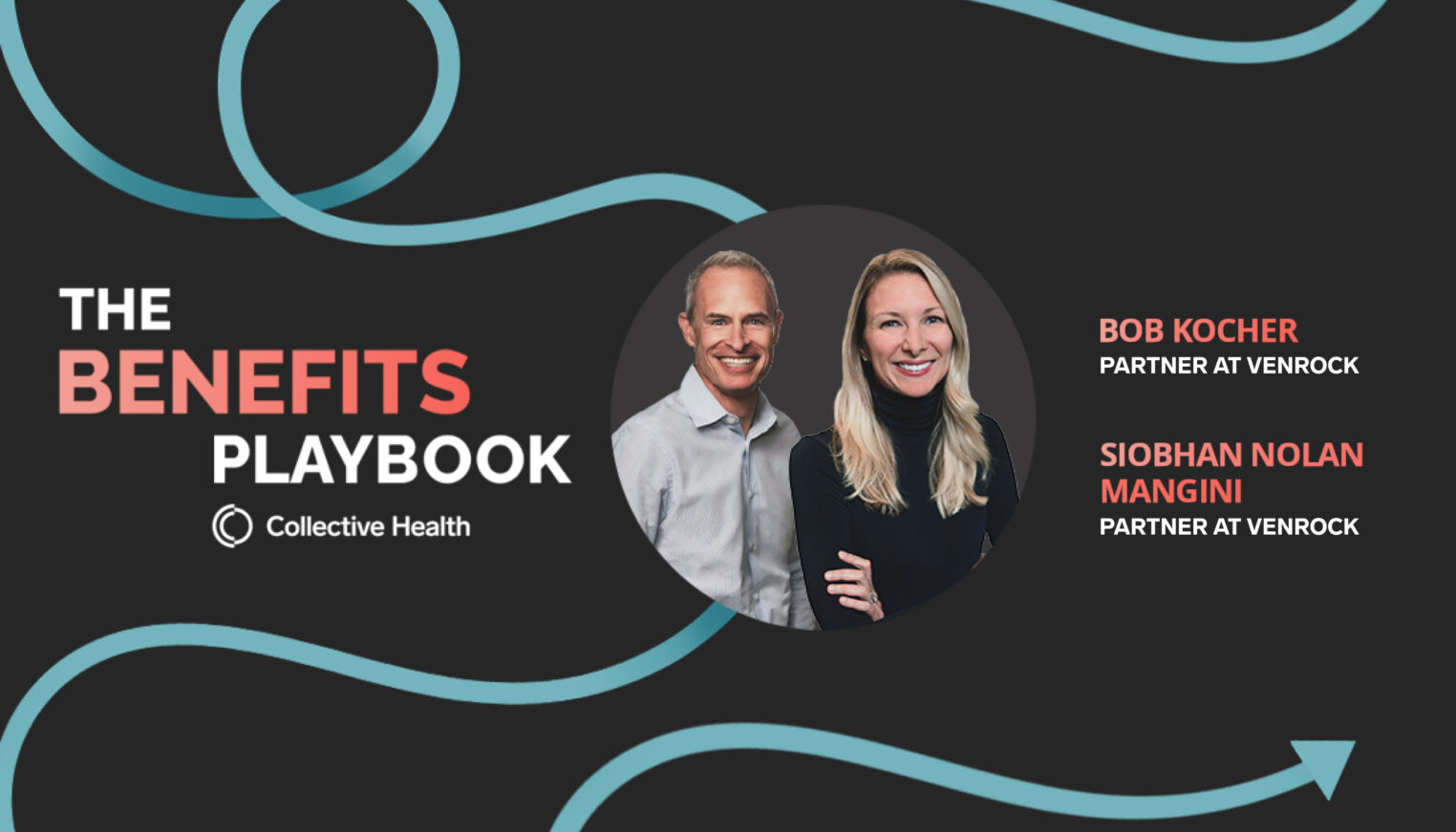By Lissa Kline, SVP, Provider and Member Services, and Melissa Maldonado, VP of Client Operations at Progyny.
Infertility is a disease which impacts 1 in 8 people and the reach is even wider when the LGBTQ+ community and single parents by choice are rightfully included, making this a critical issue in any workplace.
Those who are going through a family building journey may be under more stress and anxiety, which may be coupled with the physical strain that often goes with fertility treatments. This can have a substantial impact on one’s energy, mental health, relationships, and productivity.
With the high prevalence of infertility, it is likely that you know someone who is going through treatment whether they have chosen to disclose it at work or not. Regardless, as a people manager, it is important to recognize ways to support an employee on their path to parenthood.
Lissa Kline, SVP, Provider and Member Services at Progyny, the team that oversees the patient experience, and Melissa Maldonado, VP of Client Operations at Progyny, sat down together to discuss how people managers can support employees on their family-building journey.
Lissa, an LCSW (Licensed Clinical Social Worker), has in-depth knowledge of the emotional and physical rollercoaster that comes from family building and happens to manage Melissa. Melissa is a fertility patient herself and has gone through multiple rounds of IVF (in vitro fertilization), pregnancy losses, the highs and lows of fertility treatment to everything in between. Together, they will provide insight on how people managers and leaders can support their employees if they are struggling to build their family.
Find out more
1. Show support and open communication
One of the best ways to start showing support is through open communication. It can be through a team meeting or one one-on-one where a people manager can show support for a medical condition that may require special flexibility or accommodation.
Even if you choose not to single out infertility, invite employees to discuss any health or family issues they are experiencing with you privately. All of this begins with employers creating a culture that support all employees and their needs and acknowledging that when someone comes into work they are not necessarily leaving “home” behind.
As people managers, it is important to remember that your team members have whole and full lives outside of their work life and supporting the whole person is vital.
Lissa: The culture here at Progyny is a bit different since we talk about infertility and family building constantly. If someone is in an environment where this is not the “norm,” how would you suggest a people manager to start this conversation?
Melissa: As a people manager I think an effective way to start this conversation is to ask questions to get to know your team members one-on-one and ask how the person is doing and not taking the first answer at face value.
We are so quick to say, “All good!” though are we really? I also think it is important to notice queues – is there someone who disengages when everyone is talking about kids or when sharing baby pics? I take a mental note of these so I can check in. Also not pushing for information or details if someone is not comfortable sharing though letting them know you are always available to chat and sticking to that commitment.
Lissa: I love what Melissa says here about noticing where your employees may be disengaging and giving them a space to talk to you about it. If you notice they are not comfortable disclosing their private info, it is also ok to say, “You do not have to tell me any details. Know I am here for you, and you can always ask for help or time even if you do not want to tell me the specifics.”
Related: How to talk about family-building and its role in health benefits
2. Education is essential
The stigma of infertility often prevents people from sharing what can be an already isolating experience. While employees may not always be comfortable sharing with colleagues or a supervisor, it is important to offer educational resources, support, and communication still proactively as part of healthcare and benefits information.
As part of this communications strategy, be sure to provide the option to access information and resources in a private, anonymous manner. You can also include a place for employees to anonymously provide suggestions on education or benefits. Considering sharing resources with:
- Leverage awareness events to communicate on family-building themes
- Share awareness campaigns on company intranet and benefit sites
- Support the formation of parents to be and infertility support groups
Lissa: For you, what educational resources did you find most helpful when you started your journey or experienced a disappointing result?
Melissa: Talking to my colleagues who have gone through the process before to learn about what their journey was like and steps they took. I was then able to access information about Progyny’s fertility benefit on our people site.
It allowed me to outline what my options were as I was not enrolled in Progyny’s medical benefit when getting started with my journey. During my journey I experienced many disappointing results and was able to reach out to my Patient Care Advocate to vent and discuss my options. My Patient Care Advocate and Progyny team were able to arm me with resources like questions I can ask my clinic and doctor before proceeding with next steps.
I also elicited the support of a therapist who specializes in working with infertility patients and helped me process the anxiety and grief that came with my journey and how to advocate for myself with my partner, employer, clinic, and family.
Related: Inclusive care: how to support a diverse workforce
3. Offer flexibility
For many, family building is not a linear process. Although employees may not share, they are going through the family building process directly, they may share their need to have a more flexible work schedule or temporary arrangements due to their own (or partner’s) treatment or if they have appointments with an adoption agency or need to attend a surrogate’s medical appointments.
It is important to allow schedule changes or even telecommuting to enable employees to adjust their hours and schedule during this time.
Lissa: For the employee, if someone is not comfortable with disclosing that they are going through fertility treatment, how can someone express that they need accommodations or a change in schedule?
Melissa: If you are not comfortable sharing that you are going through fertility treatment, I think sharing that you are undergoing medical care or having a medical procedure which will require you to take some time and what that time away or schedule adjustment looks like based on what your treatment plan will be.
What may also help before asking for accommodations is, asking your nurse at the clinic what to expect, when may you need to go into the clinic, asking if they can accommodate other hours, what is the recovery process like for a procedure and what they recommend for going back to work.
Most fertility treatments and procedures may not require an extensive time to recuperate so knowing the details about what your journey may look like can help you put together a plan.
Most clinics offer flexible morning monitoring hours before work and other clinics may allow you to come in at the time that works best for you. When putting your plan together before sharing, consider the unknowns like when having your procedure. You may not know the exact time it will occur until the day before.
Lissa: Can you give an example of what a typical schedule shift may look like for someone who is pursuing treatment?
Melissa: Depending on your clinic’s monitoring hours, blocking off mornings for monitoring appointments and the frequent commutes to the fertility clinic (so needing to account for time and travel), asking the clinic for standard call back timeframes to ensure you are available for when their nurse calls or ask the nurse to send results and instructions via email.
If you need to inject during working hours, blocking time to step away and inject and pack your supplies in a safe and clean storage bag or container like a pencil case or lunch bag with a freezer pack for medications that need to be refrigerated.
Related: Improving health outcomes with healthcare navigation
4. Organize a support group
Employees going through fertility treatment generally agree that only others going through a similar journey really understand. Privately offer to organize an employee resource group or a support group or tap into an existing parents’ group, like Trying to Conceive or Parents in Waiting.
The group can be open to all employees, anyone with a medical challenge, anyone going through a loss, or just for infertility. Organizing the group restores a sense of control. The group can help fight feelings of isolation and restore perspective, even for those who choose to not identify their specific challenge.
Groups can also help the People or HR teams understand what benefits may be best for the organization to ensure their employees are getting the right kind of support through a fertility benefit.
Lissa: Did you decide to join a group or start one at Progyny?
Melissa: After talking to many colleagues about their journey I thought it would be helpful to start a group at Progyny so that there is a place to talk to others. I initiated the conversation by sharing my own story first which allowed others to share theirs with me. I raised the interest to our HR team to inquire if there was one in the works and if not, what were the steps to start one. I also connected with a few of my colleagues who expressed interest in having the group about starting the group.
Lissa: How would you suggest someone to start a group? Or even join one?
Melissa: If interested in starting one, gather others who may be interested. Ask your colleagues if they have an interest in joining or know someone who may have interest. Reach out to HR and People team to inquire about the steps to start one and share the interest among your colleagues.
If interested in joining, find out when the group meets and the setting. If you do not want to join, ask your friends if they are open to joining with you for support.
Related: Member experience: at the core of Collective Health benefits
Communicate company resources
If your company has fertility and family building benefits, be sure they are communicated effectively to all employees and included in regular benefits education. Even if your company does not offer these types of benefits, there may be existing company resources that can be especially helpful to address family building.
These resources include:
- employee assistance programs with counseling services
- mental health resources
- support for grief or loss
- care navigation and support from your fertility benefit provider
Infertility is not a condition that individuals choose or can prevent, but employers and people managers can choose to create and reinforce a culture that supports employees in the most critical moments. For more resources on how to support employees on their path to parenthood, check out Progyny’s free guide: Breaking the Silence, and Stigma at Work.
Disclaimer: The views expressed in the article are those of third parties. They do not purport to reflect the opinions or views of Collective Health or its members.
Sources
- Centers for Disease Control (2022), ‘What is Infertility?’
- National Association of Social Workers (2022) Clinical Social Work
- Society of Human Resource Professionals (2022), ‘What is an Employee Assistance Program?’
- Ravishankar R.A. (2022), ‘Does Your Employer Offer Fertility and Family Planning Benefits?’, Harvard Business Review, 10 March.



